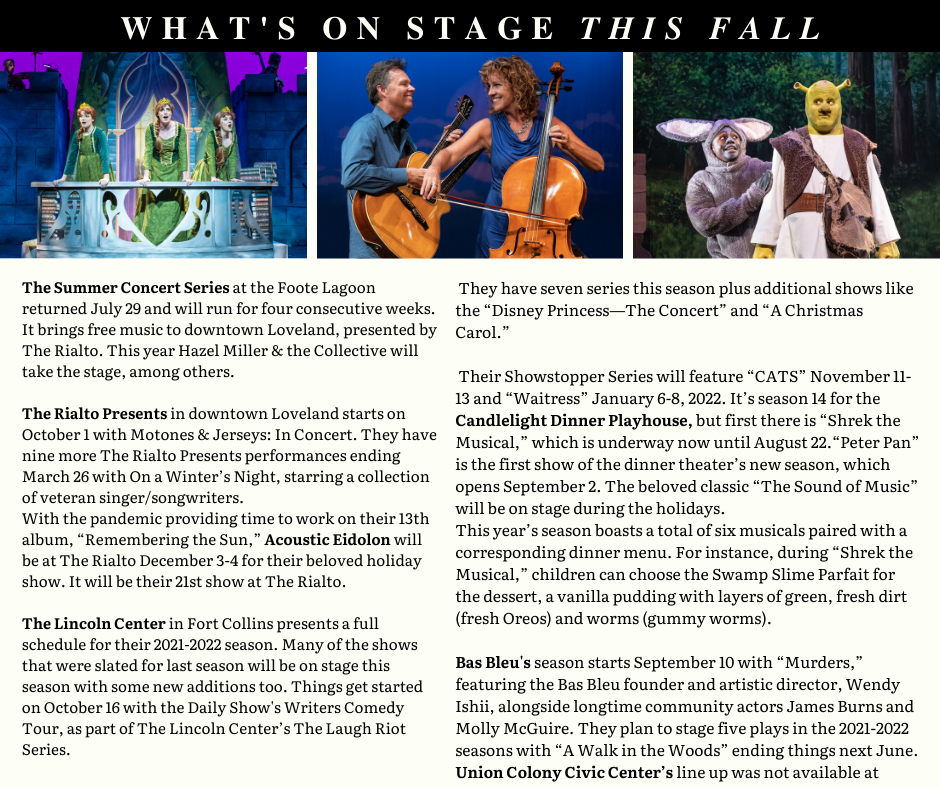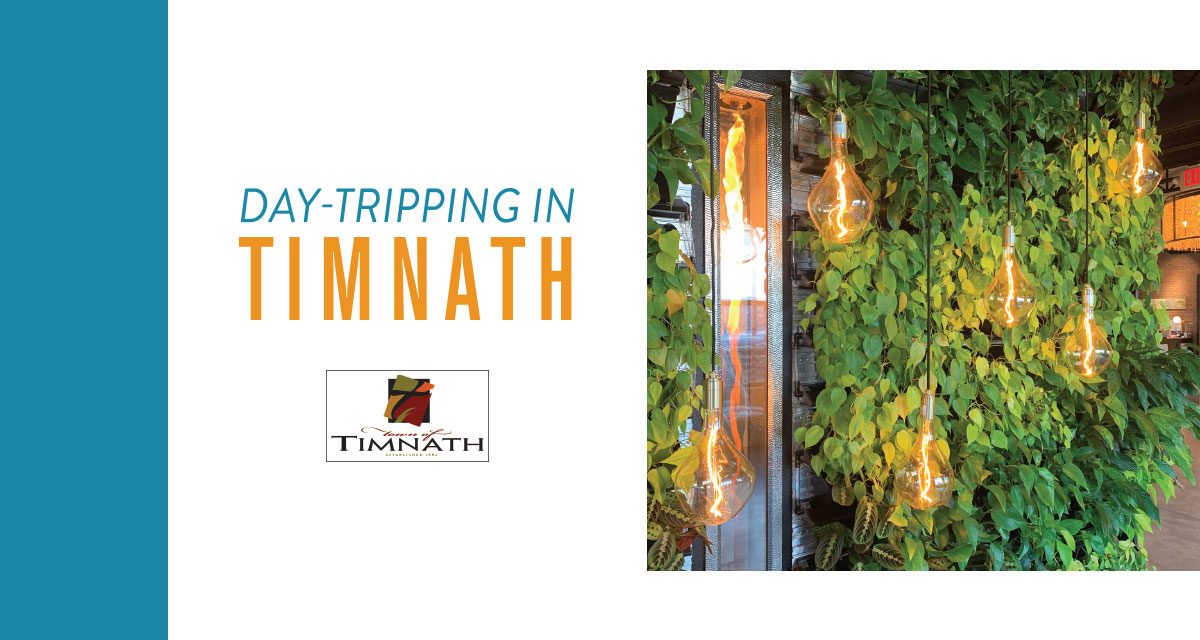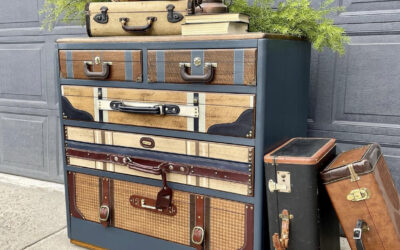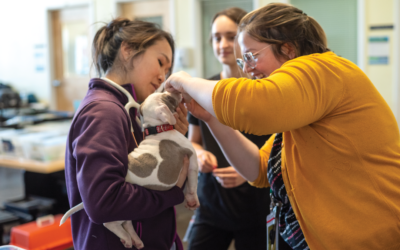And it will, after local theater companies and venues fine-tune programs after the pandemic.
By Heidi Kerr-Schlaefer
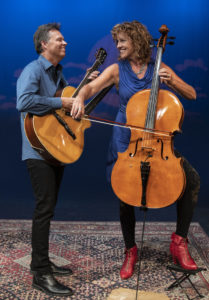 In March 2020, husband and wife duo Joe Scott and Hannah Alkire of Berthoud were on their way to Arizona where they had a string of 12 shows. Scott and Alkire, in their 23rd year as Acoustic Eidolon, had just finished a tour in Florida.
In March 2020, husband and wife duo Joe Scott and Hannah Alkire of Berthoud were on their way to Arizona where they had a string of 12 shows. Scott and Alkire, in their 23rd year as Acoustic Eidolon, had just finished a tour in Florida.
During the drive from Colorado to Prescott, 11 of the 12 shows cancelled due to coronavirus. The first show, in Prescott, was canceled on the day of the concert. Eventually, Acoustic Eidolon had about 100 concerts cancel, as well as a European tour.
For more than a year, coronavirus has been taking livelihoods away and turning theaters into ghost towns. In early 2021, there were no answers as to when theaters would reopen because no one had experienced this type of worldwide pandemic.
Coronavirus arrived in the same year that The Rialto, owned by the City of Loveland, was planning a big party for their 100th year anniversary. Not only did this celebration have to be postponed, but The Rialto’s revenue was down 90 percent between April and December 2020. 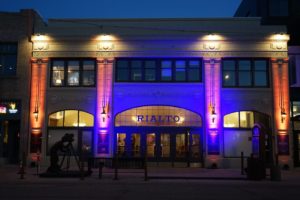
Theater managers were stuck in the precarious position of needing to keep staff, actors and audiences safe, all during an unpredictable time.
Bas Bleu, a 99-seat theater in Fort Collins, relied on donations and grants to see them through 2020. “We’ve been fortunate to have such a loyal following and donor base,” says Craig LoSasso, general manager at Bas Bleu. “They definitely wanted us to come back.”
In addition to donations, venues around Northern Colorado relied heavily on creative thinking for survival over this past year, and if theater-types are anything, they are creative. For instance, Bas Bleu is holding a Summer Sunset Festival series in Wendy Ishii’s’ yard. She is the theater’s artistic director. This way, the theater can provide a safe, outside venue for their patrons to be entertained. Several weekends a month, Ishii’s lawn fills with the sound of music, magic and plays.
Whereas venues of all sizes found themselves at the forefront of this pandemic’s ramifications, so did the bands, troupes and orchestras that counted on these venues. The Loveland Opera Theatre utilizes only Colorado performers, a rarity in the industry, and displays their talents on The Rialto stage. Performers like the Opera and Acoustic Eidolon turned to technology. Through trial and error, these groups discovered ways to reach their audience online from their homes instead of from stages.
With venues closed, the Opera went online immediately, which meant these artists were able to have a larger reach, as people stuck at home during the pandemic searched for online entertainment. It was not just keeping the audience entertained, it engaged these musicians in their craft, something extremely important during 2020 and 2021. As the world slowly begins to open, groups like the Loveland Opera Theatre are looking for ways to incorporate more online tech to their live shows.
This tactic not only reaches new people, but as Tim Kennedy, artistic director of the Opera, points out, it helps them reach a younger audience concerned with accessibility and affordability. Ironically, in the face-to-face world of theater, technology helped many venues stay afloat and helped arts organizations remain active. Greeley’s Union Colony Civic Center (UCCC), one of the largest venues in Northern Colorado, became a refuge for dance troupes. Once smaller groups could gather with masks and social distancing, UCCC prorated rental rates for their stage and local groups flocked to Greeley. During this time, UCCC’s stage also provided space for a music video to be shot for Greeley band The Burroughs and a cheerleading competition to be filmed.
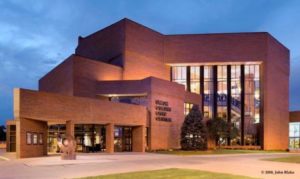 Jason Everson, manager of cultural affairs for the City of Greeley credits a Colorado Creative Industries grant to UCCC and the Greeley Philharmonic Orchestra for helping them reopen. “The state grant was instrumental in getting us back up,” he says.
Jason Everson, manager of cultural affairs for the City of Greeley credits a Colorado Creative Industries grant to UCCC and the Greeley Philharmonic Orchestra for helping them reopen. “The state grant was instrumental in getting us back up,” he says.
Live streaming events directly from the venue was another way theaters could help musicians and actors stay in touch with their audiences. While Acoustic Eidolon is internationally renowned, the couple has close ties to The Rialto, where they have played for years. This past year, they live streamed their 20th December concert from The Rialto stage without an audience in the seats. It turned into a successful fundraiser for both the band and the venue.
The Lincoln Center, owned by the City of Fort Collins, has multiple stages—they all went dark in March 2020. The core staff scrambled to move forward, but in the end, they had to postpone all scheduled shows. Much of what was on deck for 2020-2021 has been moved into the next season that starts this fall.
While The Lincoln Center was not presenting any shows, the groups that utilize their facility, like the Fort Collins Symphony, began live streaming concerts from the Center’s two stages. Slowly, The Lincoln Center started presenting their own socially-distanced shows that were also streamed live.
The Lincoln Center has made some logistical changes that they hope will make patrons feel safer about returning to in-person theater. They have increased the frequency of their air exchange to every 10 minutes. This means fresh, outside air will constantly be flowing through the building. Ticket scanning will be touchless, and programs will be digital, not paper. Some of this would have occurred regardless of coronavirus, but the pandemic prompted the Center to act now.
The first show in the new season at The Lincoln Center is scheduled for October 16. It is the Daily Show’s Writers Comedy Tour. “We’re starting things off with a fun comedy show, and I think that’s a good way to kick off our season,” says Victoria Erickson, ticketing and brand development manager at The Lincoln Center.
Jalyn Webb is sales and marketing manager at Candlelight Dinner Playhouse in Johnstown. She has been part of the theater industry in Northern Colorado since 1985, on stage and behind the scenes. “I have never worked for anyone like Dave Clark,” she says of the owner of Candlelight. “He was so determined to not just survive coronavirus, but to thrive.” Candlelight held parking lot concerts in summer2020 and three repertory shows. In dinner theater, the actors usually serve the guests, but for 15 months, that has not been the case at Candlelight. The two parts of the business were separated for safety. “It was interesting,” says Webb. “Many of the actors that work for us would audition for a show, do one run and then go back and wait on tables for the next show. Some went and got a second job at a coffee shop, and we moved around rehearsal times for them. People just had to figure out how to survive.”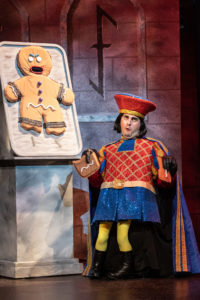
Restrictions had been fully lifted when “Shrek the Musical” got underway this June. “When I looked out and saw a full audience of faces, I just cried and cried,” says Webb. “It was a seriously emotional experience.” While stages around Northern Colorado will light back up this fall, these past two years have been full of challenges, and some will continue to affect the industry.
Coronavirus has impacted every level of the theater industry, from part-time production assistants all the way to agencies and artists. Industry trade shows were canceled for nearly two years. There is no doubt that the trickledown effect of all of this will be felt in the months and years to come. Despite that fact, the show will go on.
“Performers need an audience,” says Steve Lemmon, manager of The Rialto Theater. “Theaters need performers, and I know people like me need arts and culture.” More than a year and a half into this pandemic, venues managers and performers trust that people are ready. Ready to experience that certain spark that happens when audiences and performers are in the theater together. Who knows? The spark may be even brighter now that we know what life is like when it is gone.
Starting this fall, Northern Colorado will be alive with the sound of theater happening in every city and town. Venues we spoke to are planning a full schedule for the 2021-2022 season.
